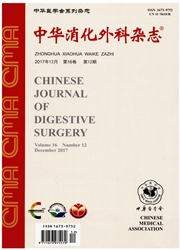

 中文摘要:
中文摘要:
我国人体器官移植事业在几代器官移植工作者的积极探索和实践下,尤其是自2000年以来发展迅速,取得了显著成绩。移植技术日趋成熟,临床肝移植、肾移植等大器官移植水平已达国际先进水平,移植质量的显著提高极大地惠及广大患者。在政府及国家卫生行政部门高度重视与推动下,我国移植器官来源实现了器官移植结构性变革,形成了“中国模式”,公民逝世后自愿器官捐献已成为我国器官移植工作的新常态。人体器官捐献工作的丌展,推动了我国移植事业发展,但问时电面临供器官短缺、改善供器官质量的挑战。在新形势下,“十三五”卫生计划生育和医改工作对人体器官捐献与移植工作提出新的要求。结合目前实际工作,在未来如何进一步科学规范提高器官捐献与移植工作的质量,笔者提出几点看法。
 英文摘要:
英文摘要:
Under active exploration and praetice ot' several generations of organ transpant workers, organ transplan- tation in China has developed rapidly since 2000 and achieved remarkble results. Techniques of transplantation become mature, and liver transplantation and renal transplantation have reached international advanced level, which benefit massive patients. With high attention and promotion of national government and health administrative departments, structural changes have oecurred to souree of national organ transplantation to form a "China Model". The donation after citizen's death has become the new normal in the organ transplantation in China. Human organ donation work promots the rapid development of transplantation in China, but it also faces challenges of the donor organ shortage and quality improvement. Under the new situation,health, family planning and medical reform work of the national " 13th Five Year Plan" puts forward new requirements on human organ donation and transplantation. Combined with practical work, this article gives a few opinions on how to scientifically further improve the quality and quantity of organ donation and transplantation and direetions of future works.
 同期刊论文项目
同期刊论文项目
 同项目期刊论文
同项目期刊论文
 期刊信息
期刊信息
